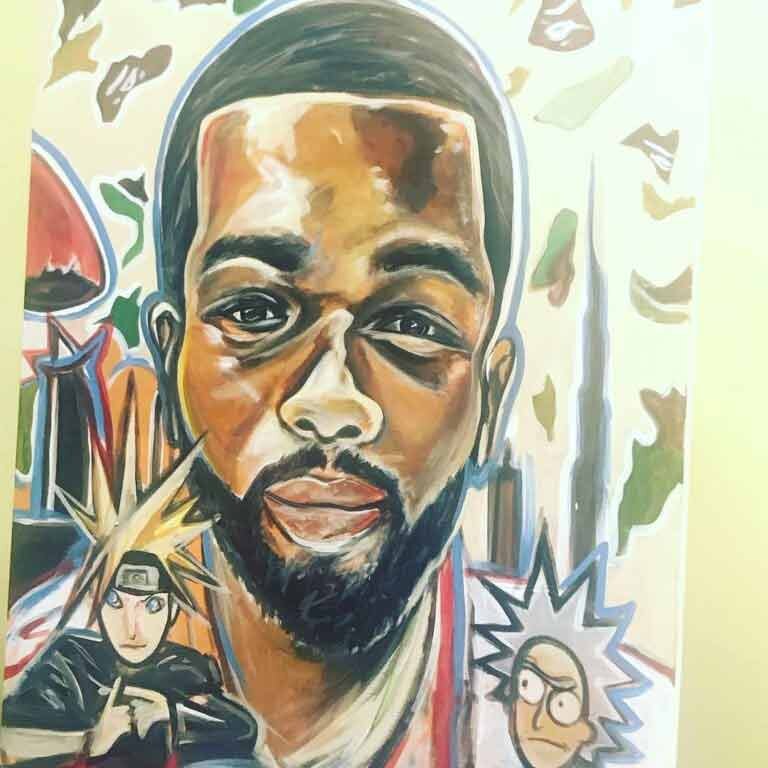It's Time We Start Talking About Black Men and Mental Health
This past week has been heavy. A college friend and fellow classmate, Rob Lawrence — one of the coolest, friendliest, most genuine people I’ve ever met — went missing back in January and was found deceased last Tuesday. I had been praying that he was on some random sabbatical being the travel junkie he was. Couldn’t bring myself to think anything else aside from that.
Rob was the type of person who could light up an entire room simply from smiling. And he could get along with literally anyone, so if you didn’t like him, something was actually wrong with you. He was kind, thoughtful, charming and the perfect gentleman. So when I learned that he passed due to suicide, it didn’t make sense to me. Still doesn’t.
Because if you look at any picture of Rob on social media, he’s either smiling, traveling the world or surrounded by family and close friends. Never in a million years would you think someone with a spirit and smile that bright would be stuck in such a dark place. But it just goes to show how we never truly know what people are going through. The crazy thing about social media is that it causes us to believe we know and see everything a person is doing, when we’re literally just seeing them through a filter. We mistake comments and likes for genuine connection and communication.
Rob’s life and untimely passing has been a huge eye opener for me and many others who had the pleasure of knowing and encountering him. It has motivated me to smile more, be more present and extend myself more to others — #likeRob did. It’s also been a very loud reminder to call and check in on loved ones. And to not take things so personally when a friend seems stand-offish or flakey because they could very well be suffering.
All of this has me thinking a lot about black men and mental health, and I realize it’s a topic we don’t discuss very often (if at all) — which is really no surprise considering how much of a touchy subject mental health is in the Black community (especially amongst church folk). We place hella emphasis on black men when it comes to police brutality, racial injustice and/or their relation to black women, but I honestly can’t remember the last time I read a good article or had a serious group discussion about black men and their dealings with mental health.
Most of us are well aware of how difficult it is for men — particularly black men — to deal with their emotions. As young boys, they are told to stop crying and “man up” when they experience in pain. When they grow up, they are told to alter their appearance as much as they can to avoid being seen as a threat. If they’re stopped by the police, they are told to comply or be killed (or both). They are told they have to have a great job, a nice car, their own place, hella swag, a decent-sized penis and an impeccable stroke game in order to be considered attractive. They must be able to protect and provide for their families, and they must have a plan and a purpose for their lives.
If they don’t have all their sh*t together, they must resort to the tarnished Golden Rule of Masculinity that they were taught growing up: to not cry, toughen up and figure it out. They’re not allowed to break under pressure. They’re not allowed to express themselves or show emotion. Nor are they allowed to reach out and ask for help when needed. At least that’s what they were raised to believe.
I personally know a few black men who deal with depression and thankfully, most of them are taking the proper actions and precautions to move forward in a healthy and positive direction. But there are many more out there, #likeRob, who are suffering in silence because they believe that’s their only option. Because their whole lives, they’ve been taught to suppress rather than express their emotions. But it’s time we start teaching our young boys that crying is okay. Asking for help is okay. Being open and vocal about emotions and mental health is okay — actually, it’s imperative.
Black men #likeRob need to know that they are loved, valued and supported. My prayer is that Rob’s life and tragic loss will push more of us to reach out to one another — especially our men — whether it’s to lend a helping hand, or ask for help.

